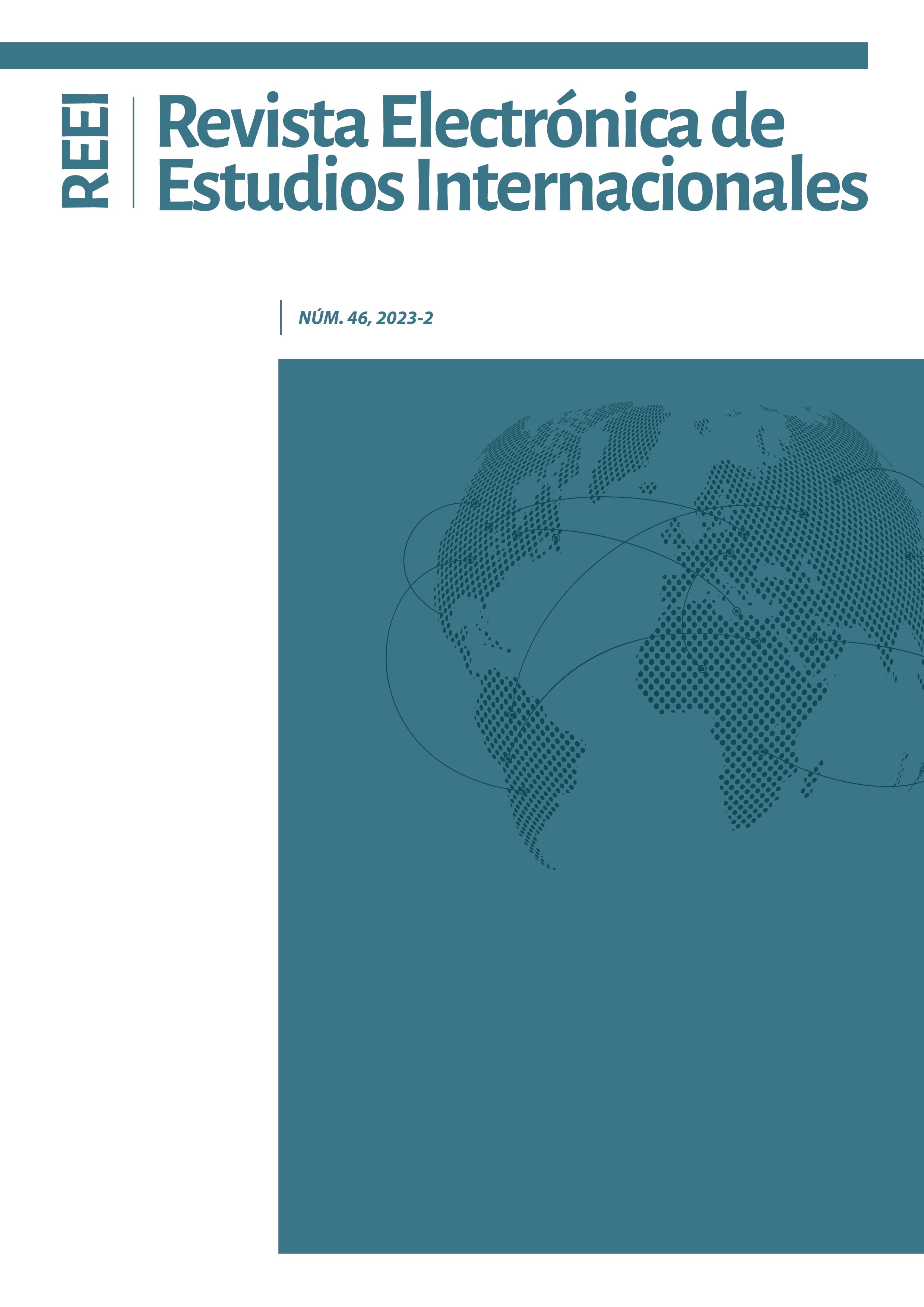Los derechos humanos y la agenda Mujeres, Paz y Seguridad en Afganistán: luces en la oscuridad
DOI:
https://doi.org/10.36151/reei.46.16Palabras clave:
Afganistán, Agenda Mujeres, Paz y seguridad, derechos humanos, género, postconflictoResumen
Afganistán ha pasado de ser un Estado democrático en vías de desarrollo a estar controlado por los talibanes, tras la salida abrupta de Estados Unidos en agosto de 2021. Las consecuencias inmediatas de la falta de resistencia del ejército afgano a la ocupación del territorio y de las instituciones por parte de este grupo ha tenido un impacto significativo en la población civil, pero especialmente en las mujeres y las niñas. Este artículo utiliza el Derecho Internacional de los Derechos Humanos como un indicador del seguimiento de la Agenda Mujeres, Paz y Seguridad de las Naciones Unidas. Para ello se parte de las actuaciones para implementar dicha Agenda realizadas por los agentes principales de su desarrollo: la OTAN, a través de la ISAF, la Misión de Asistencia de las Naciones Unidas (UNAMA) y, por último, el estado afgano. En base a este análisis, se trata de sintetizar la situación de la Agenda hasta el año 2021 (nuevo gobierno talibán) y sus retos presentes y futuros. Finalmente, se muestran unas breves conclusiones sobre cómo la intervención internacional ha contribuido a que la Agenda Mujeres, Paz y Seguridad pudiera llevarse a la práctica y cuál habría de ser su papel en el Afganistán actual.
Descargas
Descargas
Publicado
Número
Sección
Licencia
Derechos de autor 2023 Revista Electrónica de Estudios Internacionales

Esta obra está bajo una licencia internacional Creative Commons Atribución-NoComercial-SinDerivadas 4.0.




